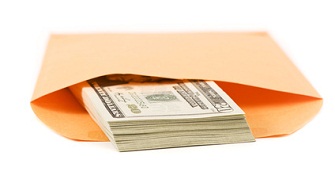
The North Carolina Department of Insurance (NCDOI) recently announced the arrest of a woman for receiving compensation for repairs both from the insurer and the driver who damaged her car—an action some North Carolinians may not know is illegal.
The incident had its roots in early 2012 when a driver hit Shantell Nicole Battle’s car while it sat unattended in a parking lot, according to an NCDOI statement. In April, Battle filed a $1,267 claim with her insurance company. But the NCDOI alleges that Battle also later received a $600 out-of-pocket payment for the repairs from the driver who had caused the accident. This was before the other driver knew Battle had filed a claim.
In North Carolina, this form of double dipping is illegal, according to Charlotte attorney Jim Wood, who has practiced insurance fraud law in the state for over 30 years.
“It’s not necessarily illegal to get a double recovery, say, in instances of health insurance,” Wood said.
But, he says, in North Carolina auto insurance cases where a person gets money from both their insurance company and the person involved in the car accident, it would be.
While Wood was not familiar with all the specifics of this case, he said that it could be illegal because, basically, the insurance company was paying for the accident damages to be fixed, and if a person got other funds toward the accident, then it should go to the insurance company, since they paid out the claim.
According to the NCDOI release, the charge Battles was arrested for was “obtaining property by false pretense.”
The North Carolina statute regarding this law basically says that anyone who takes money under false pretenses and “with intent to cheat or defraud any person of such money” will be guilty of a felony.
But that leaves the question of how Battle’s insurer was made aware of the double dipping?
State insurance regulators do not comment on ongoing court cases, so they could not discuss further details of Battle’s case, but one way that the crime could have been found out was through a process called subrogation.
Subrogation occurs when an insurance company takes care of its policyholder’s claim even though someone else is responsible for paying it, and the insurer then seeks compensation from the responsible party afterward.
So say Driver A hits Driver B’s car.
One possible scenario is Driver B files a claim with Driver A’s company. That claim would be paid through Driver A’s property damage liability coverage, and no subrogation would be necessary.
But another route is for Driver B to file a claim under his collision coverage and have his insurer pay for his own damages. Then, his insurer contacts Driver A’s insurer seeking compensation, since Driver A is responsible for the damages.
This is a typical process. But if Driver A is contacted by his insurer and he tells him that they shouldn’t have to pay because he already settled out of pocket with Driver B, then there’s a problem.
So the bottom line here is that if you’ve filed a claim with your own insurer, you need to consult with them before accepting any payment from the party responsible for the damages. If you don’t, it could land you in jail.